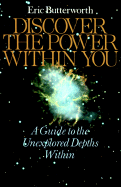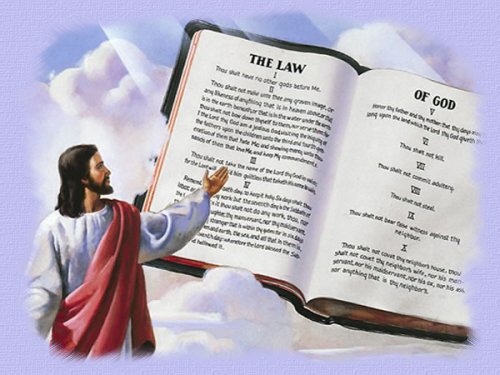
Probably the greatest theological problem faced by
New Thought is the question of the existence of evil. This same problem dogs orthodox Christianity, of course, but at least itcan fall back on the
doctrine of original sin. That doctrine is rejected by
New Thought, which teaches that we are all created perfectly, not just in the image of God but as manifestations of God - a part of creation which is eternal, wholly good and perfect. The existence of bad thinsgs in such a schema would seem to be a fundamental stumbling point. It was exactly this point that many of the early critics of
Christian Science (most notably Mark Twain, to the consternation of his devoutly Christian Science
daughter) harped on, and it continues to be the achilles heel of
New Thought philosophy. If God is Good and good is our natural state of being, why do we witness so many bad things in our world?
"Evil is
man created," says Ernest Holmes in
The Science of Mind (p. 499). He goes on to explain "God - the eternal goodness - knows nothing about it. He is too pure to behold evil and cannot look upon it. Evil is the direct and suppositional opposite to good, and has no reality behind it, or actual law to come to its support." This is the standard explanation, and is pretty much the same thing you'd hear from a
Christian Scientist or, for that matter, a
Swedenborgian. God is only goodness, so anything that we might interpret as evil is created by us, and is, in fact, an illusion. This seems an adequate response, but I always want to ask, "Yes but
why? Why do we have to suffer these delusions? If God is Good and wants only happiness for us why has he allowed us to create these phantoms of unhappiness?" The response to this is that we have been afforded free will - that free will is, in fact, the one essential aspect of our being as humans, the thing with which God has gifted us. This is an idea which derives clearly from the
writings of Emanuel Swedenborg. We are free to choose at any moment between good and evil. Interestingly, this same notion of free will is essential to most
Buddhist thinking - that conditions, circumstances and karma are all very real, but equally real is that moment of
volition when we can choose between a wise or a foolish action.
It is interesting to note, as well, that in this passage
Holmes seems to be anthropomorphising God, something strictly frowned upon in
New Thought theology. This turn of phrase is undoubtedly reflexive, but it betrays an older way of thinking about God, creation and the problem of evil. God in this description is definitely a pure deity, one who knows only good, and cannot see imperfection. But to my mind it begs the question - because it is unseen, does it mean it doesn't exist? In the rest of his writing (and in New Thought in general)
Holmes absolutely rejects a dualistic vision of the universe as divided between good and evil. The problem is always in human perception, in our own misunderstanding of circumstances. In an essay on
The Impersonal Face of God,
Holmes writes:
"We are not dealing with a negative as well as a positive Power—not two powers but one; a power that sees neither good nor evil as we see it. It knows only that it is all, and since it is all, it creates whatever is given it. From our limited standpoint we often think of good and evil; not realizing that, as yet, we do not know the one from the other. What we call good today, we may call evil tomorrow, and what we think to be evil today, we may tomorrow proclaim as the greatest good we have known. Not so with the Great Universal Power of Mind; It sees only Itself and Its infinite ability to create."
To further refine his explanation in
The Science of Mind, Holmes goes on to make a distinction between God, which is all good, and Universal Law, which is objective and unchangeable. "The law is no respecter of persons and will bring good or evil to any, according to his use or misuse of it" (
SOM, p. 500). So God is the source of all good, but his agency is the action of Universal Law. It is the duty of the human to work with these immutable laws and fall into harmony with them - thus bringing ourselves the promised perfection.
So serious is this question of evil (and, probably, so recurrent were the questions surrounding it) that
Holmes devotes a whole section of
The Science of Mind to it. Here he underlines the notion of evil as an unwise use of life's laws and conditions. It is nothing in and of itself - it is a fiction. It is the word we use to describe a whole host of results, the causes of which are mysterious to us. Evil is a destructive meme, and the student of
Religious Science can leave the concept behind forever. "To turn from evil and do good is the desire of every soul who is consecrated to the Truth; this we can do only as we cease talking about, believing in, or doing evil."









